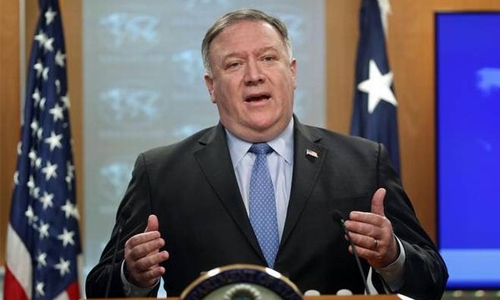Pompeo’s Arctic comments a ‘misrepresentation of facts’
China yesterday hit back at US criticism of its Arctic presence, saying Secretary of State Mike Pompeo had misrepresented facts about its intentions in the resource-rich region. Pompeo said ahead of a meeting of the eight members of the Arctic Council in Finland on Monday that the US planned to beef up its presence in the region to keep Russia and China’s “aggressive behaviour” there in check. Pompeo’s remarks were “a misrepresentation of the facts that has ulterior motives”, Chinese foreign ministry spokesman Geng Shuang said at a regular press briefing.
“We have no geopolitical calculations, and seek no exclusionary blocs,” he said. Pompeo warned against scenarios whereby nations become ensnared by debt and corruption, of low-quality investments, militarisation and uncontrolled exploitation of natural resources, all of which he said were potential effects of allowing rising Chinese influence. Geng said China has participated in Arctic affairs with “an open, cooperative and win-win attitude”.
China will “not intervene” in matters between Arctic countries, but it will also “not be absent” from global issues on the Arctic, he said. While the US and Russia are members of the Arctic Council, China holds only observer status in the cooperation body and Washington has been wary of Beijing’s attempts to style itself as a “near Arctic state”. Shuang said “the Arctic issue is not only related to Arctic countries, but is also of global significance and international influence”.
He said China is willing to work with others to “protect the Arctic, to exploit the Arctic and to participate in the governance of the Arctic”. Beijing has invested massively in the region -- almost $90 billion between 2012 and 2017, according to Pompeo -- and intends to fully benefit from the advantages of the Northern Sea Route. The shipping channel, which drastically cuts sailing times between the Pacific and Atlantic by passing north of Russia, is increasingly usable as the ice melts.
Related Posts

